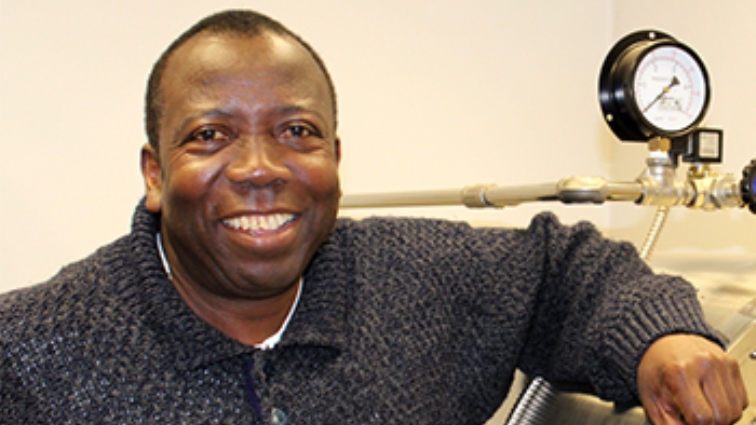In pockets of excellence and with resounding success, African researchers are illustrating that the continent has the capacity to address its own health challenges, given a conducive environment and sufficient investment.
In Botswana, a scientist under the Developing Excellence in Leadership, Training and Science (DELTAS Africa) programme – a US$100 million programme supporting the Africa-led development of world-class scientific leaders – has developed a new drug resistance test that costs about a quarter of the original one currently in use. This has proved helpful for the Botswana government and can be replicated in other countries after validation and further tests.
In Mali, Dr Drissa Coulibaly, a MARCAD postdoc fellow and medical doctor specializing in parasitology, is currently researching malaria distribution with a focus on guiding malaria control programmes across the continent.
Meanwhile in Malawi, the first malaria vaccine pilot is about to be rolled out. The malaria vaccine has been shown in clinical trials to have the potential to prevent approximately 4 out of 10 malaria cases and 3 in 10 cases of life-threatening severe malaria. With malaria incidence in Africa on the rise once again, the vaccine could prove to be a sustainable solution to reducing Africa’s malaria disease burden.
Successes such as these are, unfortunately, still limited to instances in which funding and an environment conducive to research have been made available. In general, R&D pipelines for the diseases that disproportionately affect African countries continue to be inadequate. Africa’s global share of health researchers is a mere 0.3 percent, with 198 researchers per million people, numbers that pale in comparison with other continents. Africa only produces 2.6 % of the world’s scientific output because it is underfunded, with the continent’s R&D investment at only 1.3 % of the global spend. As a result, many African researchers leave the continent, with over 10% of sub-Saharan Africans with graduate degrees emigrating.
To stimulate further success and encourage African researchers to come back home to address Africa-specific challenges, significantly more investment is needed in Africa’s scientific R&D.
One organization that is taking steps to address this situation is DELTAS Africa. It is doing so by investing in conducive environments to nurture researchers in Africa. One such investment by DELTAS is the West African Centre for Cell Biology of Infectious Pathogens at the University of Ghana – a research facility focused on developing new approaches to disease diagnosis, prevention and control in Africa. The facility is attracting leading researchers back to Africa to work on health issues facing the continent. These include a Ghanaian researcher who recently returned from the United States after 10 years and is now conducting research to better understand a type of breast cancer disproportionately affecting women in Africa.
To catalyse the shift to an Africa-driven scientific agenda, African Governments need to lead the change by both creating enabling policies and increasing funding towards scientific R&D.
R&D can deliver multiple economic benefits and offers a significant return on investment, for example, an estimated return of $17 for each US$1 invested in vaccination in low- and middle-income countries. Creating an environment conducive to a larger scientific workforce would not only speed up work to address uniquely African challenges; it would deliver sustainable progress over the longer term too. More researchers would attract higher foreign direct investment in the form of grants, and help build a sustainable R&D infrastructure that will not only create positive ripple effects in the economy, but also pave the way for a reversal in scientific brain-drain.
Scientific progress in Africa requires more than R&D investment; however – it also requires enhanced collaboration between researchers across the continent. Intra-Africa collaboration is important to mobilise political support for research, to pool scant resources and maximise impact for shared challenges.
By collectively creating an enabling environment, investing in R&D and sharing knowledge across borders, Africa’s scientific community stands to expand on the successes it has achieved to date and make significant inroads in addressing the continent’s unique health challenges.
Prof Felix Dapare Dakora, President, The African Academy of Sciences
Felix Dapare Dakora is the President of the African Academy of Sciences. He has over 33 years-work experience in Africa and North America where he has been a researcher and has supervised and graduated master’s and doctoral students. His research spans the fixation of biological nitrogen (N2) in legumes and has promised great results. He is currently a Plant and Soil Biotechnology Professor at the Tshwane University of Technology in Pretoria and a National Research Foundation grant holder. Dakora is a recipient of the UNESCO-Equatorial Guinea International Prize for Research in the Life Sciences; the African Union Kwame Nkrumah Scientific Award; and is a Fellow of the Academy of Science of South Africa. He has served on many advisory/scientific committees of major international conferences, including being President of the African Association for Biological Nitrogen Fixation


